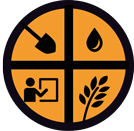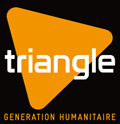AREA OF EXPERTISE

Multisectoral

AREA OF EXPERTISE

Multisectoral
FUNDING
We are therefore running actions to soften the IDPs' integration, while supporting efforts to return home. Triangle provides displaced families and IDPs with veterinarian services to protect the health of their small herds. We also supply fodder to the poorest households and, in partnership with OXFAM, will rebuild hydraulic infrastructures destroyed by shelling (end of 2009 start of 2010).
Despite a secessionist attempt by the South in 1994, the Republic of Yemen's unification was achieved in 1990, however the country remained shaken by substantial internal political tensions and social issues. The beginning of 2009 was marked by the recrudescence of stormy demonstrations in South Yemen, followed by the arrest of political opponents and the cancellation of legislative elections in April. The conflict in Saada governorate singularly reflected Yemen's fragility. Government forces have been battling « Al Houti » rebels (named of their historical leaders) intermittently ever since September 2004. In a climate of ongoing tension, with sporadic fighting, the country has already suffered five wars and various mediation attempts have failed to provide a peaceful solution. The sixth war began in April 2009.
The civilian population was once again directly exposed to the conflict. Facing immediate and heightened danger, thousands of families fled the combat zones and had to endure multiple displacements according to the conflict's escalation and geographical dispersion. To date, the United Nations agencies have formerly registered 150,000 Internally Displaced People (IDP). Fleeing Saada and Amran areas, families have made their way north-west (towards Saudi Arabia), south-west to Hajjah governorate, and east (Al Jawf)
It was in this context, that Triangle conducted technical assessments in October 2009 in Haradh area. The surveys highlighted, among other points, the acute decapitalization process of the displaced families that had recently arrived. Most of the IDPs used to be farmers in mountain areas and traditionally own around 30 to 35 animals (sheep and goats, some cows and a donkey). They are not professional breeders in the sense that they do not raise an income from their herds, however the animals are an important part of these people's assets: the herd can provide some cash flow should problems arise. For example, a goat is sold when a person need expensive medical care. In other words, the herds represent a form of security for the households.
War, displacement and current settlement in camps around Al Mazraq have severely weakened the animals, seriously endangered the households' source of revenue and exacerbated sanitary conditions.
The main objective is to Improve the living conditions of conflict-affected populations from Northern Yemen displaced in Al Mazraq area, particularly by slowing down the decapitalization process among displaced families, and improving access to drinking water for populations returning to their original villages.